
88 Writers on the Books They Loved in 2022
The Year in Reading From Contributors to Freeman’s
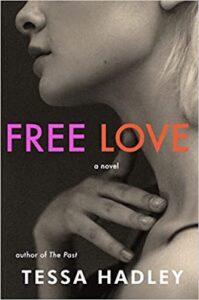
Tessa Hadley, Free Love
To hearten myself as we crawled out of the lockdowns I went back to Tessa Hadley’s novels and stories, for that clarity of soul she’s got, that womanly, unillusioned voice. Then, full of beans, I rushed out for her new novel, Free Love. I don’t know of anyone who can make characters the way she does. The text overflows with them, so fresh, without strain or laboured invention. Watching them emerge is like listening to a calm virtuoso playing, or a magpie quietly improvising its song—a deep, relaxed confidence, something in nature that’s meant to be.
–Helen Garner, author of How to End a Story: Diaries, 1995-1998
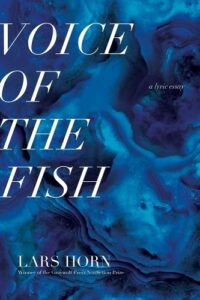
Lars Horn, Voice of the Fish
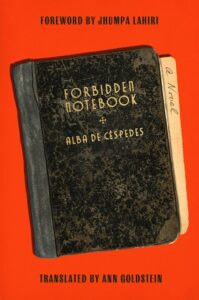
Alba de Cespedes, Quarderno Probito
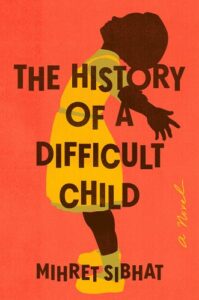
Mihret Sibhatu, The History of a Difficult Child
I don’t know if I have read anything this year as aching and beautiful as Lars Horn’s Voice of the Fish. The book asks large questions about identity, destiny, trauma, and art all while considering marine life and ancient texts. The world felt vast and filled with new possibilities when I got done. It moved me in the way that the best literature does.
I savored every page of Alba de Cespedes’ fantastic Quarderno Probito. Structured as a series of diary entries by a woman who has to hide the journal (and thus, her thoughts and feelings) from her husband and children, this revelatory book is a treatise on what privacy and imagination mean for a woman, especially as she juggles family, work, and aging. Seemingly small incidents in a day gather significance and grow ever more complicated, and the cumulative force is stunningly powerful. I heard this is being translated into English, I am excited for others in the US to read this.
This next book is a sneak peek into what will be available in 2023: Mihret Sibhatu’s debut novel, The History of a Difficult Child, is astonishing. Irreverent, insightful, and poignant and funny all at once. It is the story of a young girl growing up in Ethiopia as the revolution of 1974 sweeps in and changes life forever. But it’s also a meditation on religion, God, family, and identity, and personal, necessary rebellions. I find myself regularly thinking about this book after reading it. It’s that good, it’s that fearless.
–Maaza Mengiste, author of The Shadow King
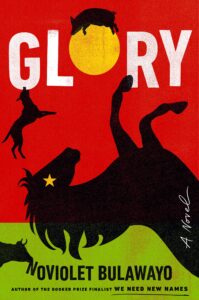
NoViolet Bulawayo, Glory
Glory, NoViolet Bulawayo’s brilliant animal satire of Zimbabwean politics and the downfall of a dictator, had me alternately crying tears of laughter and tears of despair.
–Aminatta Forna, author of The Window Seat: Notes from a Life in Motion
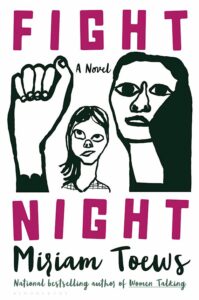
Miriam Toews, Fight Night

Emmanuel Carrère, Yoga
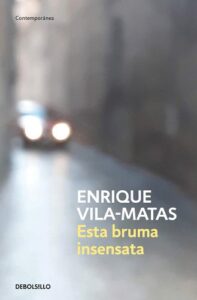
Enrique Vila-Matas, Esta Bruma Insensate
This year it became yet more apparent that the universe is heavily ironic. In the spirit of this further revelation I read a lot of heavily ironic writing: Miriam Toews’ hilarious and devastating Fight Night, Emmanuel Carrère’s Yoga (described by one reviewer as ‘not so much self-karaoke as self-cannibalism’) and Esta Bruma Insensate (That Mindless Mist) by the ever-brilliant Enrique Vila-Matas.
–Joanna Kavenna, author of Zed
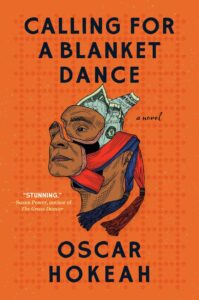
Oscar Hokeah, Calling For a Blanket Dance
The book I got the most excited about in 2022 is Oscar Hokeah’s Calling For a Blanket Dance. It’s such a vital and powerful novel, giving us a wide range of voices over decades of Native life in a new and real way, from a writer I will from now on read everything he writes. Lately it’s felt like I either don’t like a book enough to finish it or love it so much I read it again immediately after finishing it. Often I’ll read the book first then listen to the audiobook (I did this with Tess Gunty’s The Rabbit Hutch this year too), and the cast and performance of Calling For a Blanket Dance is so satisfyingly dynamic and nothing less than stunning. I could not more highly recommend this book.
–Tommy Orange, author of There, There
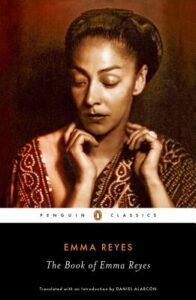
Emma Reyes, The Book of Emma Reyes
This year I read The Book of Emma Reyes, a harrowing memoir by the Colombian-born artist who was raised in a windowless room before being abandoned by her mother in the 1920s. Translated to English for the first time in 2017 by Daniel Alarcón, the memoir was originally written as letters over the course of thirty years. Reyes would go on to have a celebrated career as an artist and run in the same circles Diego Rivera, Frida Kahlo, and Gabriel Garcia Marquez. The book is astounding in its detail and remarkable that it even exists, given that Reyes was illiterate until the age of fifteen.
–Kali Fajardo-Anstine, author of Woman of Light

Kemi Alabi, Against Heaven
For months this year I found myself walking with and savoring the rich lyric and fugitive wildfire of Kemi Alabi’s rocket of a debut Against Heaven. The poems feel like offering and refusal all at once, alive with language that somehow matches the height of knowledge and depth of heart this poet conjures. In a year full of an overwhelming amount of incredible poetry, I was so happy to find my way to Alabi’s strikingly original and transformative work and join the fan club of their ignited, flabbergasted readers.
–Danez Smith, author of Homie

Dionne Brand, Ossuaries
Simply: Ossuaries by Dionne Brand. An epic in tercets, the momentum of ‘momentous times,’ through an underground concrete and material, coming together into an atmosphere, a poem bleak and clear-eyed of its times and histories and inevitabilities and complicities and yet. And yet—we must. Revolutionary. I don’t want to say much, but I am grateful to any year, even this one, with this book in it, which reads like a flare.
–Solmaz Sharif, author of Customs
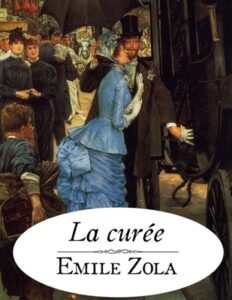
Émile Zola, La curée
A book that blew me away this year was Émile Zola’s La curée (The Quarry, often translated as The Kill). Part of the 20-volume Rougon-Macquart cycle, this withering 1871 novel wraps a sordid tale of rampant real estate speculation during the Haussmannian rebuilding of Paris around a tawdry, Phèdre-like story of a woman’s illicit lust for her husband’s son—all part of the author’s caustic indictment of morals and politics during the Second Empire. Really powerful writing with remarkable, almost cinematic set-pieces.
–Daniel Mendelsohn, author of Three Rings: A Tale of Exile, Narrative and Fate












